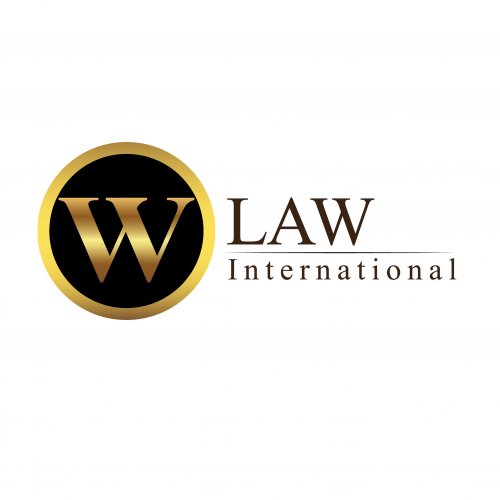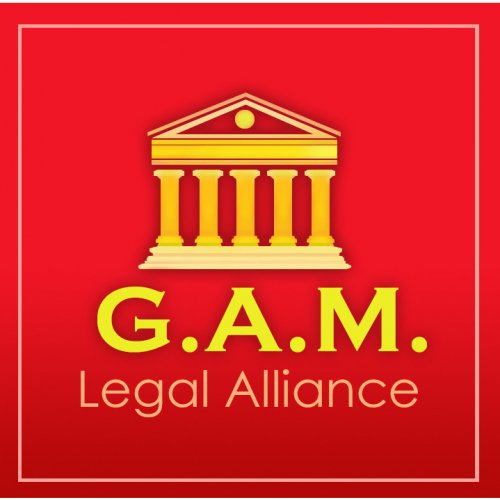ทนายความ การกำกับดูแลบริการทางการเงิน ที่ดีที่สุดใน ประเทศไทย
แบ่งปันความต้องการของคุณกับเรา รับการติดต่อจากสำนักงานกฎหมาย
ฟรี ใช้เวลา 2 นาที
หรือปรับแต่งการค้นหาของคุณโดยเลือกเมือง:
รายชื่อทนายความที่ดีที่สุดใน ประเทศไทย
คู่มือกฎหมายเขียนโดย Smart Legal Solutions:
- Main Legal Measures to Protect Foreign Investment in Thailand
- The importance of the geographical indications for the Thai economy
คู่มือกฎหมายเขียนโดย SIAM LEGAL INTERNATIONAL:
- Defamation Laws in Thailand: Criminal Charges and Civil Suits
- The State of Thailand’s Long-Term Resident (LTR) Visa Program in 2025
- The Penalties Of Not Filing Your Income Tax Return As A Foreigner In Thailand
1. เกี่ยวกับกฎหมายการกำกับดูแลบริการทางการเงินในประเทศไทย
กฎหมายกำกับดูแลบริการทางการเงินในประเทศไทยครอบคลุมหลายสาขา ได้แก่ ธนาคารและสถาบันการเงินที่ไม่ใช่ธนาคาร ตลาดทุน ประกันภัย และบริการทางการเงินอื่นๆ ที่เกี่ยวข้อง
วัตถุประสงค์หลักคือป้องกันความเสี่ยงผู้บริโภค สร้างเสถียรภาพทางการเงิน และส่งเสริมความโปร่งใสในการประกอบธุรกิจด้านการเงิน
การบังคับใช้มุ่งเน้นการอนุญาต การกำกับดูแล และการตรวจสอบอย่างต่อเนื่อง เพื่อให้ผู้ประกอบการปฏิบัติตามเงื่อนไขด้านทุน สภาพคล่อง และคุ้มครองผู้ลงทุน
“การกำกับดูแลที่เข้มงวดช่วยคุ้มครองผู้ลงทุนและสร้างความมั่นใจในระบบการเงิน”
ผู้สนใจควรเข้าใจบทบาทของหน่วยงานหลักที่ดูแลสาขาองค์กรต่างๆ เพื่อให้สามารถเลือกทนายความที่เชี่ยวชาญด้านการกำกับดูแลได้
2. ทำไมคุณอาจต้องการทนายความ
หากคุณวางแผนจะเริ่มธุรกิจที่อยู่ในกรอบการกำกับดูแลด้านการเงิน คุณจะพบข้อกำหนดที่ซับซ้อนและขั้นตอนการยื่นอนุญาตที่ละเอียด
ตัวอย่างสถานการณ์ที่ต้องการทนายความในประเทศไทย:
- ฉันต้องการเปิดแพลตฟอร์มสินเชื่อออนไลน์ที่เข้าข่ายการกำกับดูแล ต้องทราบว่าใบอนุญาตใดบังคับใช้และกระบวนการยื่นอย่างไร
- ธุรกิจฉันต้องปฏิบัติตาม AML/CFT และ KYC ต้องมีเอกสารอะไรบ้าง และจะตรวจสอบยังไง
- มีการตรวจสอบจากหน่วยงานกำกับดูแลเกี่ยวกับข้อมูลลูกค้า ต้องเตรียมตัวอย่างไรเพื่อหลีกเลี่ยงข้อหาทางกฎหมาย
- ต้องการทำประกันความรับผิดสำหรับบริการทางการเงิน ฉันควรยื่นขอใบอนุญาตกับหน่วยงานใดและอย่างไร
- บริษัทจดทะเบียนในตลาดหลักทรัพย์ ต้องเตรียมข้อมูลและเงื่อนไขการเปิดเผยอย่างไรให้สอดคล้องกับ SEC
- กรณีที่มีข้อพิพาทกับผู้ลงทุน ต้องการคำปรึกษาเรื่องการเจรจา สืบพยาน และการบังคับใช้สัญญา
3. ภาพรวมกฎหมายท้องถิ่น
ต่อไปนี้เป็นกฎหมายหลักที่กำกับดูแลการให้บริการทางการเงินในประเทศไทย โดยชื่อกฎหมายและบทบาทสำคัญที่ควรรู้
- พระราชบัญญัติกำกับการธนาคารพาณิชย์ พ.ศ. 2485 - กำกับดูแลธนาคารแห่งประเทศไทยและวาทะทางการเงินในระบบธนาคาร
- พระราชบัญญัติกิจการสถาบันการเงิน พ.ศ. 2551 - ควบคุมสถาบันการเงินที่ไม่ใช่ธนาคาร ออกใบอนุญาตและกำกับดูแลการดำเนินงาน
- พระราชบัญญัตุหลักทรัพย์และตลาดหลักทรัพย์ พ.ศ. 2535 - กำกับตลาดทุน ผู้ประกอบธุรกิจหลักทรัพย์ และการออกหลักทรัพย์
- ฉบับปรับปรุงด้านประกันภัย - กำกับดูแลการประกอบธุรกิจประกันภัยผ่านสำนักงาน คปภ. (OIC) เพื่อคุ้มครองผู้ประกันภัย
บังคับใช้งานและการเปลี่ยนแปลงล่าสุดมักมีประกาศจากหน่วยงานกำกับดูแล สถานะและแนวทางปฏิบัติอาจเปลี่ยนแปลงได้ตามพัฒนการตลาดและนโยบายรัฐ
แหล่งอ้างอิงแนวคิดทางกฎหมาย และแนวทางปฏิบัติจากหน่วยงานกำกับดูแลชั้นนำช่วยให้คุณอัปเดตข้อมูลได้เสมอ
4. คำถามที่พบบ่อย
อะไรคือบทบาทหลักของกฎหมายกำกับดูแลทางการเงินในประเทศไทย?
กฎหมายกำกับดูแลกำหนดบทบาทหน้าที่ของหน่วยงานรัฐในการออกใบอนุญาต ตรวจสอบความมั่นคง และป้องกันผู้บริโภคจากความเสี่ยงทางการเงิน
อย่างไรฉันจะเริ่มกระบวนการขออนุญาตจากหน่วยงานกำกับดูแล?
คุณควรระบุประเภทบริการที่ต้องการ รายงานรายละเอียดธุรกิจ และเตรียมเอกสารทางการเงินและการดำเนินงาน จากนั้นปรึกษาทนายความเพื่อประสานงานกับหน่วยงานที่เกี่ยวข้อง
เมื่อไหร่ควรปรึกษาทนายความด้านการกำกับดูแลการเงิน?
ควรปรึกษาเมื่อคิดจะเริ่มธุรกิจที่อยู่ในกรอบกฎหมาย หรือเมื่อได้รับข้อเรียกร้อง ตรวจสอบการดำเนินงาน หรือมีแผนปรับโครงสร้างองค์กร
ที่ไหนฉันยื่นขอใบอนุญาตบริการทางการเงิน?
ใบอนุญาตขึ้นกับประเภทบริการ คุณอาจยื่นต่อ BOT สำหรับสถาบัน non-bank หรือ SEC สำหรับหลักทรัพย์ และ OIC สำหรับประกันภัย รวมถึงหน่วยงานที่เกี่ยวข้อง
ทำไมต้องมีทนายความในการยื่นขอใบอนุญาต?
ทนายความช่วยวิเคราะห์ข้อกำหนด ตรวจสอบเอกสาร และลดความเสี่ยงในการยื่นคำขอ โดยได้รับความรู้เฉพาะด้านและประสบการณ์จากกรณีจริง
สามารถเรียกร้องค่าชดเชยได้หรือไม่หากมีการละเมิดกฎหมาย?
ได้ ขึ้นอยู่กับกรณี เช่น การละเมิดข้อมูลลูกค้า หรือการละเลยข้อกำหนดด้านคุ้มครองผู้บริโภค หน่วยงานกำกับดูแลมีอำนวจเรียกร้องค่าชดเชยหรือบังคับปรับ
ควรเตรียมเอกสารอะไรบ้างเมื่อพบกับทนาย?
เตรียมแผนธุรกิจ รายละเอียดบริการ นโยบายความเป็นส่วนตัว ข้อตกลงกับลูกค้า ใบอนุญาตที่มีอยู่ และเอกสารการเงินที่เกี่ยวข้อง
อะไรคือความแตกต่างระหว่าง BOT กับ SEC ในการกำกับดูแล?
BOT ควบคุมธนาคารและสถาบันการเงินที่ไม่ใช่ธนาคาร ในขณะที่ SEC ดูแลตลาดทุน หลักทรัพย์ และผู้ประกอบธุรกิจหลักทรัพย์
รูปแบบบริการทางการเงินใดบ้างที่ต้องมีใบอนุญาตพิเศษ?
บริการที่เกี่ยวข้องกับเงินฝาก การให้สินเชื่อ การประกอบธุรกิจหลักทรัพย์ และประกันภัย มักต้องขอใบอนุญาตจากหน่วยงานที่รับผิดชอบ
ค่าใช้จ่ายในการว่าจ้างทนายด้านการกำกับดูแลเป็นอย่างไร?
ค่าใช้จ่ายขึ้นอยู่กับความซับซ้อนของเรื่อง จำนวนเอกสาร และระยะเวลาการดำเนินการ โดยทั่วไปมีค่าปรึกษา ค่าเอกสาร และค่าติดตามกระบวนการ
ระยะเวลาการดำเนินการตั้งแต่ยื่นจนอนุมัติอาจใช้เวลานานเท่าใด?
ระยะเวลาขึ้นกับหน่วยงานและความครบถ้วนของเอกสาร บางกรณีใช้ 4-12 สัปดาห์สำหรับขั้นตอนพื้นฐาน บางกรณีซับซ้อนอาจมากกว่านั้น
คุณสมบัติที่ควรพิจารณาเมื่อเลือกทนายความด้านการกำกับดูแล
เลือกผู้เชี่ยวชาญด้านกฎหมายการเงิน ประสบการณ์ด้านใบอนุญาตและการตรวจสอบจาก BOT SEC OIC และมีผลงานที่เข้ากับธุรกิจของคุณ
5. ทรัพยากรเพิ่มเติม
- สำนักงาน คณะกรรมการกำกับหลักทรัพย์และตลาดหลักทรัพย์ (SEC) - https://www.sec.or.th
- สำนักงาน คปภ. (Office of Insurance Commission) - https://www.oic.go.th
- กรมพัฒนาธุรกิจการค้า (DBD) - https://www.dbd.go.th
สื่ออ้างอิงทางการ เช่น ประกาศระเบียบ แนวทาง หรือข่าวสารจากหน่วยงานด้านบน มีความสำคัญในการอัปเดตข้อกำหนดใหม่ๆ
6. ขั้นตอนถัดไป
- กำหนดขอบเขตธุรกิจทางการเงินที่ต้องการดำเนินการ และระบุ regulator ที่เกี่ยวข้อง (SEC, BOT หรือ OIC) ภายใน 2-5 วัน
- รวบรวมเอกสารเบื้องต้น เช่น แผนธุรกิจ นโยบายความเป็นส่วนตัว กลยุทธ์การปฏิบัติตามกฎหมาย ฯลฯ ภายใน 1-2 สัปดาห์
- ปรึกษาทนายความด้านการกำกับดูแล เพื่อประเมินความต้องการใบอนุญาตและโครงสร้างองค์กรภายใน 1 สัปดาห์
- สร้างรายการความเสี่ยงด้านกฎหมาย พร้อมแผนลดความเสี่ยงและแนวทางปฏิบัติที่สอดคล้องข้อกำหนด ภายใน 2-3 สัปดาห์
- นำส่งเอกสารขอใบอนุญาตต่อหน่วยงานที่เกี่ยวข้อง ตามลำดับและติดตามความคืบหน้าใน 4-8 สัปดาห์
- ถ้ามีข้อเสนอแนะจากหน่วยงาน ให้ปรับปรุงเอกสารและนโยบาย และยืนยันการอนุมัติ ภายใน 2-6 สัปดาห์
- เมื่อได้รับอนุมัติ ให้ขอคำแนะนำเพิ่มเติมเกี่ยวกับเงื่อนไขการติดตามและการรายงานต่อหน่วยงานอย่างสม่ำเสมอ
Lawzana ช่วยคุณค้นหาทนายความและสำนักงานกฎหมายที่ดีที่สุด ใน ประเทศไทย ผ่านรายชื่อผู้เชี่ยวชาญด้านกฎหมายที่มีคุณสมบัติเหมาะสมที่คัดสรรและตรวจสอบล่วงหน้า แพลตฟอร์มของเรานำเสนอการจัดอันดับและโปรไฟล์โดยละเอียดของทนายความและสำนักงานกฎหมาย ช่วยให้คุณเปรียบเทียบตามสาขากฎหมาย รวมถึง การกำกับดูแลบริการทางการเงิน ประสบการณ์ และความคิดเห็นของลูกค้า
แต่ละโปรไฟล์ประกอบด้วยคำอธิบายเกี่ยวกับสาขากฎหมายของสำนักงาน รีวิวจากลูกค้า สมาชิกในทีมและหุ้นส่วน ปีที่ก่อตั้ง ภาษาที่พูด ที่ตั้งสำนักงาน ข้อมูลการติดต่อ การมีตัวตนบนโซเชียลมีเดีย และบทความหรือแหล่งข้อมูลที่เผยแพร่ สำนักงานส่วนใหญ่บนแพลตฟอร์มของเราพูดภาษาอังกฤษและมีประสบการณ์ทั้งในเรื่องกฎหมายท้องถิ่นและระหว่างประเทศ
ขอใบเสนอราคาจากสำนักงานกฎหมายชั้นนำ ใน ประเทศไทย — รวดเร็ว ปลอดภัย และไม่ยุ่งยาก
ข้อจำกัดความรับผิดชอบ:
ข้อมูลที่ให้ไว้ในหน้านี้มีวัตถุประสงค์เพื่อเป็นข้อมูลทั่วไปเท่านั้นและไม่ถือเป็นคำแนะนำทางกฎหมาย แม้ว่าเราจะพยายามตรวจสอบความถูกต้องและความเกี่ยวข้องของเนื้อหา แต่ข้อมูลทางกฎหมายอาจเปลี่ยนแปลงได้ตามกาลเวลา และการตีความกฎหมายอาจแตกต่างกันไป คุณควรปรึกษาผู้เชี่ยวชาญด้านกฎหมายที่มีคุณสมบัติเหมาะสมเพื่อขอคำแนะนำเฉพาะสำหรับสถานการณ์ของคุณเสมอ
เราปฏิเสธความรับผิดทั้งหมดสำหรับการกระทำที่ทำหรือไม่ทำตามเนื้อหาในหน้านี้ หากคุณเชื่อว่าข้อมูลใดไม่ถูกต้องหรือล้าสมัย โปรด contact us และเราจะตรวจสอบและแก้ไขตามความเหมาะสม
เรียกดูสำนักงานกฎหมาย การกำกับดูแลบริการทางการเงิน ตามเมืองใน ประเทศไทย
ปรับแต่งการค้นหาของคุณโดยเลือกเมือง

















